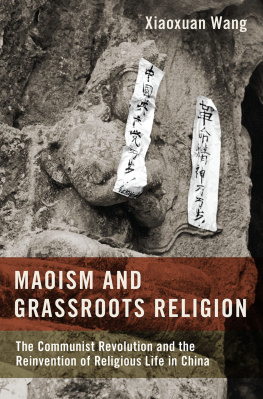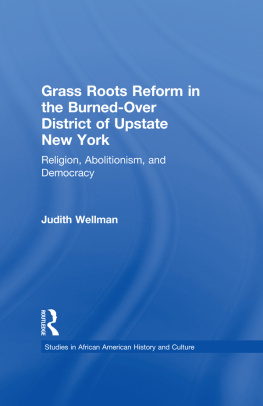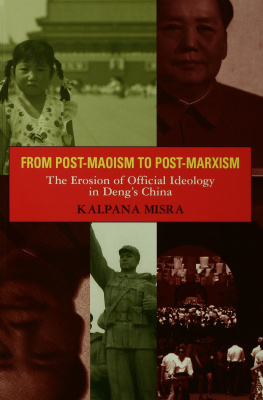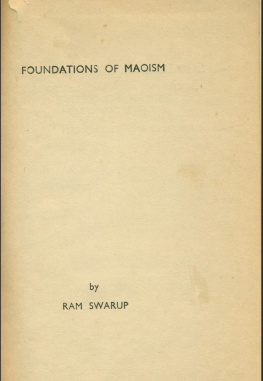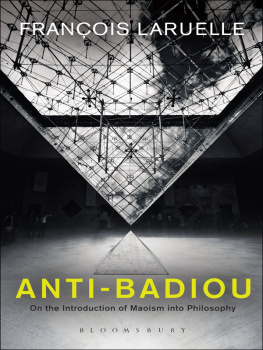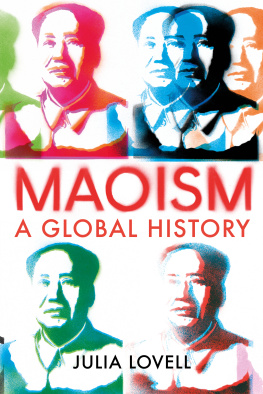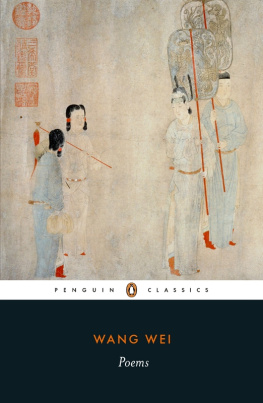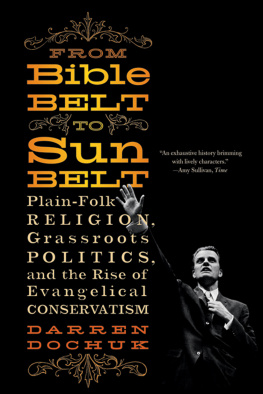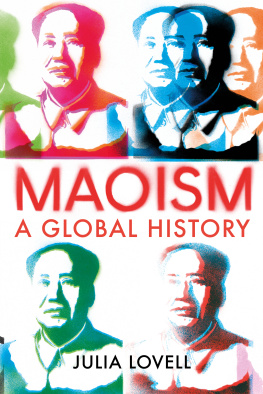Wang Xiaoxuan - Maoism and Grassroots Religion
Here you can read online Wang Xiaoxuan - Maoism and Grassroots Religion full text of the book (entire story) in english for free. Download pdf and epub, get meaning, cover and reviews about this ebook. year: 2020, publisher: OxfordUP, genre: Religion. Description of the work, (preface) as well as reviews are available. Best literature library LitArk.com created for fans of good reading and offers a wide selection of genres:
Romance novel
Science fiction
Adventure
Detective
Science
History
Home and family
Prose
Art
Politics
Computer
Non-fiction
Religion
Business
Children
Humor
Choose a favorite category and find really read worthwhile books. Enjoy immersion in the world of imagination, feel the emotions of the characters or learn something new for yourself, make an fascinating discovery.
- Book:Maoism and Grassroots Religion
- Author:
- Publisher:OxfordUP
- Genre:
- Year:2020
- Rating:4 / 5
- Favourites:Add to favourites
- Your mark:
- 80
- 1
- 2
- 3
- 4
- 5
Maoism and Grassroots Religion: summary, description and annotation
We offer to read an annotation, description, summary or preface (depends on what the author of the book "Maoism and Grassroots Religion" wrote himself). If you haven't found the necessary information about the book — write in the comments, we will try to find it.
Maoism and Grassroots Religion — read online for free the complete book (whole text) full work
Below is the text of the book, divided by pages. System saving the place of the last page read, allows you to conveniently read the book "Maoism and Grassroots Religion" online for free, without having to search again every time where you left off. Put a bookmark, and you can go to the page where you finished reading at any time.
Font size:
Interval:
Bookmark:


Oxford University Press is a department of the University of Oxford. It furthers the Universitys objective of excellence in research, scholarship, and education by publishing worldwide. Oxford is a registered trade mark of Oxford University Press in the UK and certain other countries.
Published in the United States of America by Oxford University Press
198 Madison Avenue, New York, NY 10016, United States of America.
Oxford University Press 2020
All rights reserved. No part of this publication may be reproduced, stored in a retrieval system, or transmitted, in any form or by any means, without the prior permission in writing of Oxford University Press, or as expressly permitted by law, by license, or under terms agreed with the appropriate reproduction rights organization. Inquiries concerning reproduction outside the scope of the above should be sent to the Rights Department, Oxford University Press, at the address above.
You must not circulate this work in any other form and you must impose this same condition on any acquirer.
Library of Congress Cataloging-in-Publication Data
Names: Wang, Xiaoxuan, author.
Title: Maoism and grassroots religion : the communist revolution and the reinvention of religious life in China / Xiaoxuan Wang.
Description: New York : Oxford University Press, 2020. | Includes bibliographical references and index.
Identifiers: LCCN 2019040365 (print) | LCCN 2019040366 (ebook) | ISBN 9780190069384 |
ISBN 9780190069407 (epub)
Subjects: LCSH: ChinaReligious life and customsHistory20th century. |
CommunismChinaHistory20th century.
Classification: LCC BL1803 .W364 2020 (print) | LCC BL1803 (ebook) | DDC 200.951/0904dc23 LC
record available at https://lccn.loc.gov/2019040365
LC ebook record available at https://lccn.loc.gov/2019040366
To Xuan and to my parents, Lu Chunzhu and Wang Jianyong
Growing up in a place full of temples, churches, shrines, and rituals, I have always been curious about the past of Chinese religions. This long-standing curiosity, plus the realization that there were very few studies of religion under Mao, prompted me to write a history of local religious life during the Mao years. It has been more than four decades since the ending of the Cultural Revolution and almost a decade since I began research for this book. Understanding Maoism and its legacies on contemporary Chinese society and politics seems ever more important with passing time.
I have accumulated numerous intellectual and personal debt to many people while working on this book. I thank Michael Szonyi, my adviser at Harvard, for allowing me to choose religion under Mao as the theme of my dissertation even though neither of us were sure if this topic was doable given the difficulty of gaining access to materials. Michaels critical insights have helped me shape my ideas into their current form in the book. From research to writing to other aspects of creating this book, Robert Weller has been a main source of help. I thank his straightforward and useful suggestions. His thoughtful comments and his broad perspective on Chinese religions constantly impress and never fail to inspire me.
I thank the Max Planck Institute (MPI) for the Study of Religious and Ethnic Diversity, where I finished this book, and I especially thank Director Peter van der Veer for his interest in and support of my project all along. MPI has the best work environment that I could ever imagine. Not every research institute has a proper kitchen and a garden! As one of the few historians in the institute, I learned a great deal from my anthropologist colleagues. I miss countless chats with colleagues and friends: Irfan Ahmad, Suddheesh Bhasi, Chen Yan, Chen Yining, Chiu Tzu-lung, Diao Ying, Fabian Graham, He Xiao, Jin-Heon Jung, Kang Jie, Maya Kaiser, Patrice Ladwig, Samuel Lengen, Liu Jifeng, Ma Zhen, Mai Thi Thanh Nga, Tam Ngo, Paul Sorrentino, Shaheed Tayob, Sajida Tursun, Leilah Vevaina, Ngoc Thi Vuong, Yu Jingyang, Zhu Jili, and others.
Special thanks to Maya for meticulous and superb editing and truly insightful comments. I feel really lucky to have had her help.
Some colleagues have read parts of the early versions of the manuscript and provided invaluable comments. They include Peter Bol, Jeremy Brown, Henrietta Harrison, Matthew Johnson, and Paul Katz. I am indebted to them all.
I feel lucky to be publishing with Oxford University Press. It has been a wonderful experience working with Cynthia Read, the editor of my book, and her assistant, Salma Ismaiel.
I am fortunate to have received the aid of numerous individuals who greatly facilitated the task of collecting data and field researches. Above all, I want to thank the staff at the local state archives in Longquan, Pingyang, Ruian, Taishun, Wencheng, Wenling, Wenzhou, Xinchang and Yueqing, Ruian City Library, Wenzhou Municipal Library, and Zhejiang Provincial Library for helping me find documents. Special thanks go to Wu Zhenqiang of Zhejiang University. Among my many interviewees and local guides, I especially thank Chen Meiling, Dai Xuefu, Ding Bingkuan, Ding Yuzhen, Pan Yiheng, Shi Liaozheng, Wu Zhenwei, Xia Mingxin, Ying Weixian, the late Zhang Junsun, Zhang Shisong, Zhou Zexian and Zhu Chenlan. My friends Zhou Gang and Qin Yong helped arrange my visits to local temples, archives, and the Ruian Religious Affairs Bureau. Wu Tianyue and Zhang Jieke not only shared their own researches but also made copies of historical records of local churches in Ruian and the Wenzhou region available to me. Pan Junliang of the University of Paris VII shared with me documents on southern Zhejiang that he had collected. My relatives provided invaluable support during my fieldwork in Ruian and Hangzhou. I thank my brother Xuan, cousin Zhe, in-laws Haifeng and Dong, uncle Mingxiong, aunt Caicha, and aunt Chunhua.
My parents, Wang Jianyong and Lu Chuzhu, were always supportive of me pursuing my own interest, though they do not necessarily understand the nature of my researches. They were born around the founding of the PRC and have lived through many major political movements since 1949. Naturally, when I grew up, many dinner table talks were about PRC history, especially my parents and their peers experiences during the Mao years. They may not have realized it yet, but I increasingly see in them the why for becoming a historian. This book is for them.
Finally, my wife Xuan Gui has been by my side for every up and down of the entire journey. Xuan read early versions of the book, helped polish my writing, and shared her thoughts with me. Her love, patience, and unwavering faith in me kept me going. Without her, this book would not have been possible. This book is dedicated to her.
This book uses pinyin for transliterations unless the Chinese terms already have a commonly known spelling (e.g., Chiang Kai-shek, Y. T. Wu).
Names of authors are listed in either the Chinese (surname followed by given name) or Western order (surname followed by given name), mostly depending on the order of the names appearing in the publications.
Chinese characters are used in the term list and bibliography. This book only uses traditional characters.
Frequently used abbreviations:
CCP: Chinese Communist Party
CIM: China Inland Mission
CJIC: China Jesus Independent Church
Font size:
Interval:
Bookmark:
Similar books «Maoism and Grassroots Religion»
Look at similar books to Maoism and Grassroots Religion. We have selected literature similar in name and meaning in the hope of providing readers with more options to find new, interesting, not yet read works.
Discussion, reviews of the book Maoism and Grassroots Religion and just readers' own opinions. Leave your comments, write what you think about the work, its meaning or the main characters. Specify what exactly you liked and what you didn't like, and why you think so.

